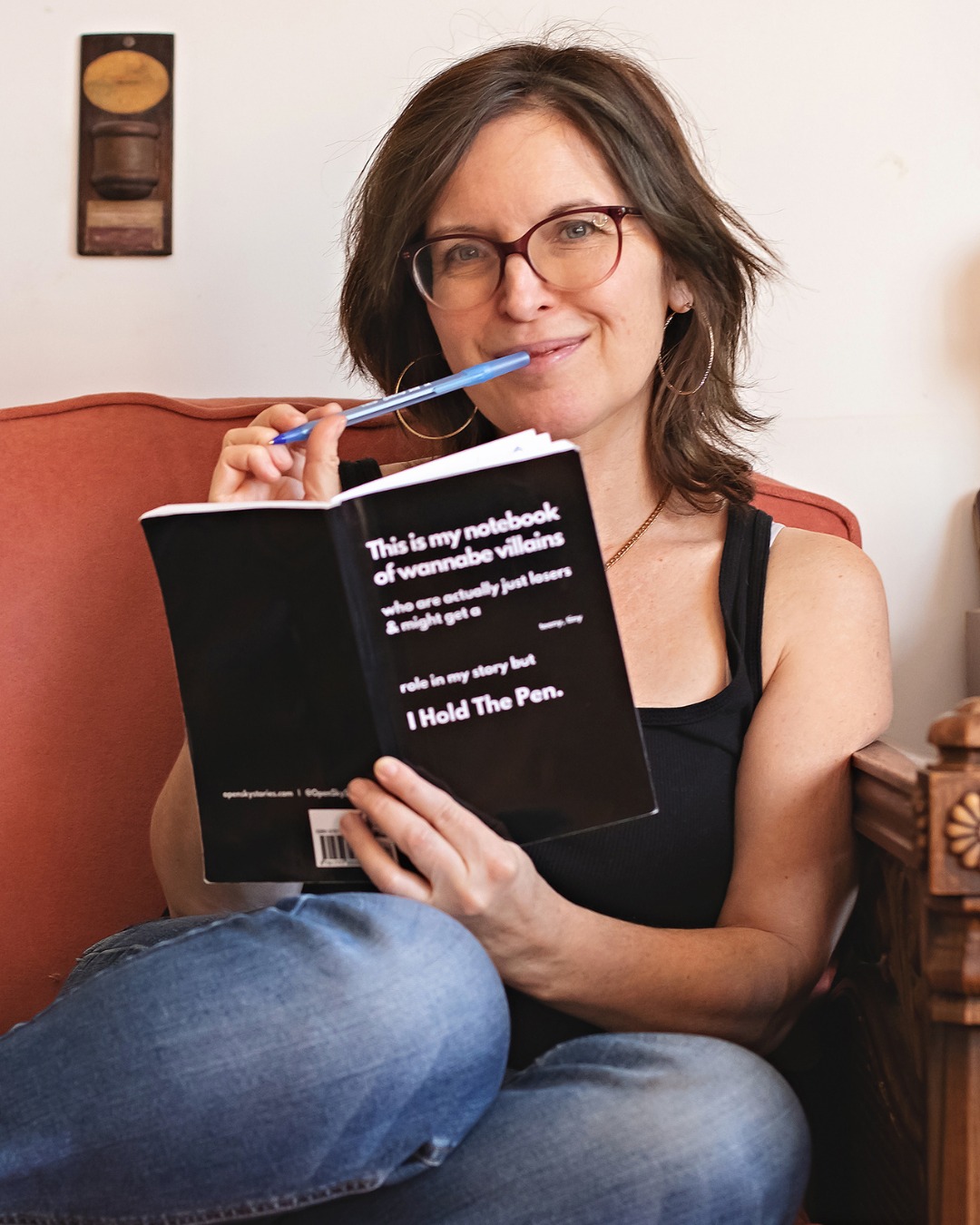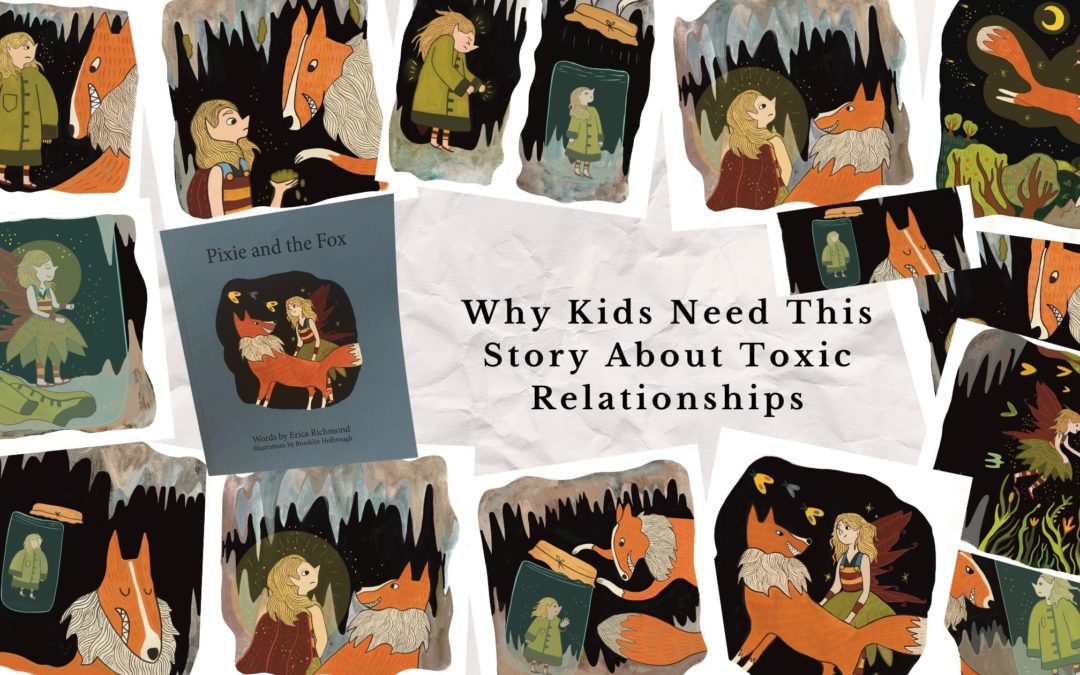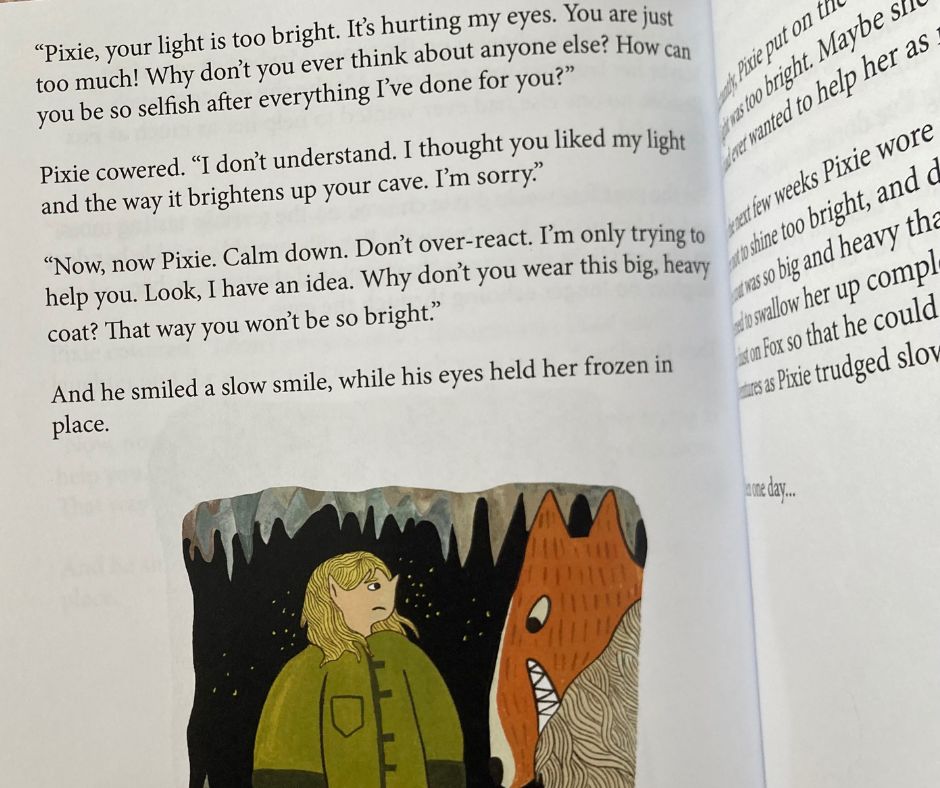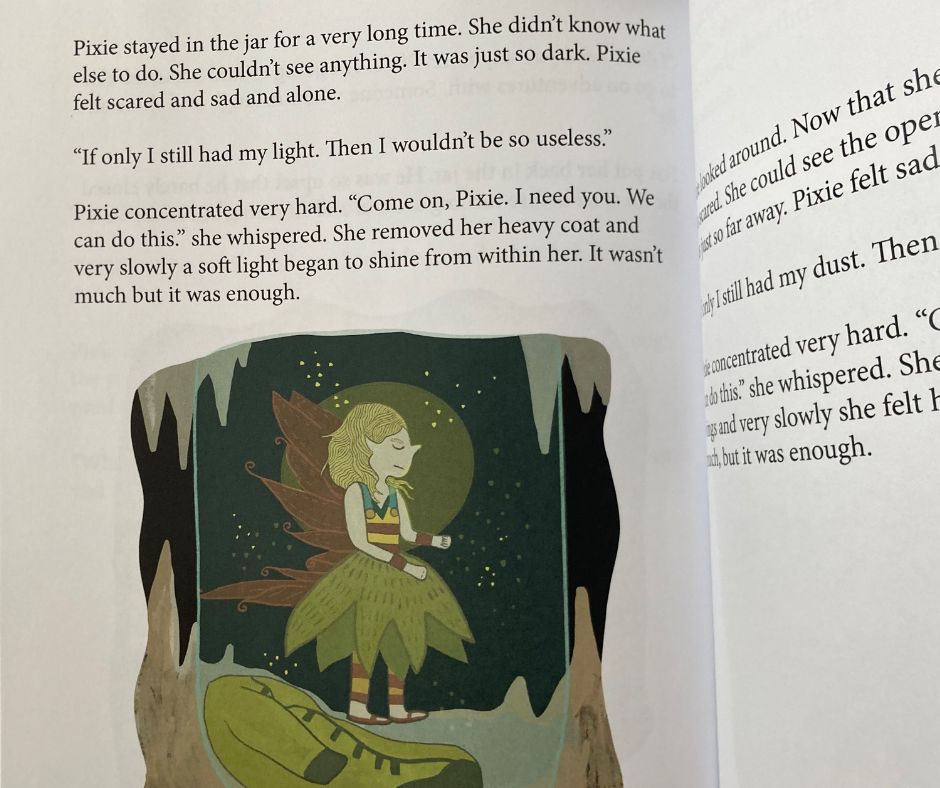Why We Need to Talk to Kids About Unhealthy Relationships
I set up my books on the table, arranging them just so. A few minutes later, a parent stops by, eyes scanning the covers.
“Oh! Pixie and the Bees!” they say, picking it up with enthusiasm. “My child has anxiety. This is so important. I love that you wrote this.”
I smile, grateful that stories like this are making their way into more conversations. We’ve come so far in talking about mental health. Yay us!
Then I introduce Pixie and the Fox.
“This one is about unhealthy relationships—about what it feels like when someone slowly convinces you to change, to shrink, to give up parts of yourself to please them.”
Their smile fades. “Oh… I don’t think my child is old enough for this. It seems dark.”
I hear this reaction a lot. And I get it. It’s uncomfortable. But here’s what I need people to understand:
Kids are already seeing unhealthy relationships.
And when I read this book to kids? They get it. They boo the Fox. They cheer for Pixie.
They understand, instinctively, that someone who makes you hide your sparkle and carry their burdens is not a friend.
So why are we, as adults, so hesitant to have this conversation?
We’ve Made Progress on Mental Health—Now Let’s Talk About Toxic Relationships
We’ve made incredible progress in normalizing conversations about mental health. Anxiety, depression, and emotional well-being are part of our language in a way they weren’t when I was growing up. That’s a huge win.
But when it comes to violence against women, domestic violence, and unhealthy relationships, we hesitate.
We don’t want to believe our kids will ever encounter these things. But the truth is, they already do—whether it’s in the homes of friends, in their own families, or through media and social circles.
- In Canada, 11 million people have experienced intimate partner violence since the age of 15.
- Killings of women and girls by men in Canada increased by 27% from 2019-2022.
- Often parents believe that they have shielded their children from spousal violence, but research shows that children see or hear some 40%-80% of it.
- Children who witness violence at home are twice as likely to experience or perpetrate abuse later in life.
- And not every unhealthy relationship is romantic—kids experience manipulation, control, and toxicity in friendships, family relationships, and social settings, too.
Every single time a woman has read Pixie and the Fox, she looks at me with tears in her eyes. “This is my experience,” she says. “I know that Fox.”
Their story is real. This story is real.
And if so many grown women recognize themselves in it, why wouldn’t we want to give kids the tools to recognize these patterns early?
How Unhealthy Relationships Affect Kids—Even When They’re Not Romantic
In Pixie and the Fox, Pixie meets a charming Fox who slowly convinces her to change—to cover up her sparkle, to make less noise, to live in a jar. She gives up pieces of herself until she barely recognizes who she is.
But then, she finds her way back.
This is what I want kids to know:
✨ You don’t have to change yourself to be loved.
✨ Relationships should lift you up, not weigh you down.
✨ You deserve to shine fully, just as you are.
Yes, Pixie and the Fox is a hard story.
But it’s also a hopeful one. Because when kids learn early what love and friendship should feel like, they’re more likely to recognize when something isn’t right.
We’ve done so much to open up conversations about mental health. Now, let’s make sure we’re doing the same for the relationships our kids grow up believing are normal.
What We Can Do to Teach Kids About Healthy Relationships
- Talk to kids about what healthy relationships look like—friendships, family, and beyond.
- Let them know they never have to dim their light to be accepted.
- Read stories that open the door to these conversations.
Because a child who learns they deserve to shine grows into an adult who refuses to let anyone dim their light.
How You Can Help: Share Pixie and the Fox
- Get a copy of Pixie and the Fox—read it with a child in your life, or donate it to someone who needs it.
- Ask your local library to carry it so more families can access the story.
- Share it with educators, therapists, and counsellors who work with kids.
- Bring a copy to your local women’s shelter—because sometimes, a story can be the first step toward healing.
- Start the conversation. The more we talk about what healthy relationships look like, the more we equip kids to recognize them.
You can find Pixie and the Fox here.
We’ve done so much to open up conversations about mental health. Now, let’s do the same for the relationships our kids grow up believing are normal.
And to all of you who have encountered your own Fox, please know that I see you and that you deserve to shine.
xo,
Erica
Looking for more writing inspiration? Sign up for Inspired Ink and receive writing tips, creative connections and real-life stories delivered straight to your inbox.

Erica Richmond, the founder of Open Sky Stories believes that words have the power to provide connection & healing. Erica is public speaker and offers a variety of writing workshops and groups. Erica has published three books: Pixie and the Fox, Pixie and the Bees and The Mail Art Stories Project: Mail Art in the Time of Covid-19.
She lives in Peterborough, Canada embracing her beautiful, imperfect, and very messy life.
Follow Erica on Instagram for daily writing inspiration and real-life stories. Be sure to sign up for her newsletter and receive writing tips, inspiration, and creative projects.




0 Comments